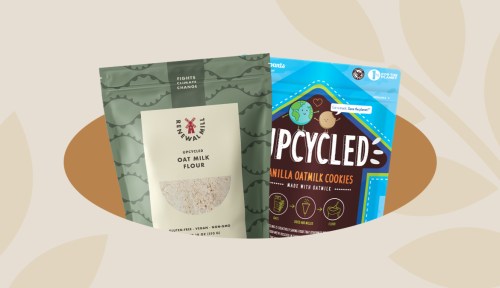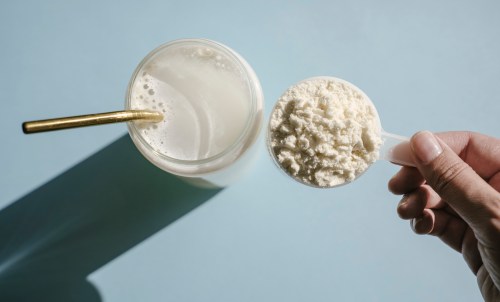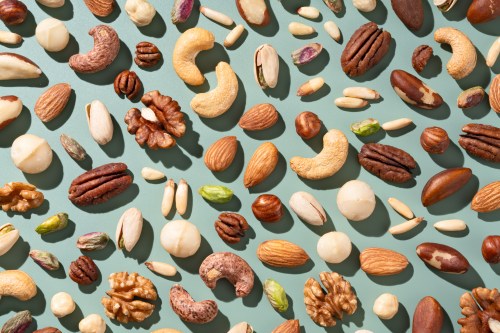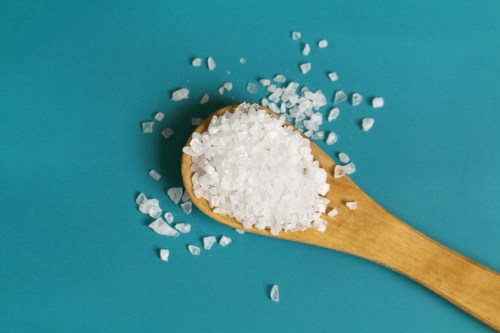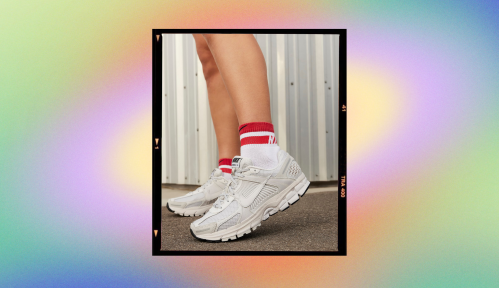Our editors independently select these products. Making a purchase through our links may earn Well+Good a commission
Despite the alternative milk aisle getting a lot more crowded these past few years (seriously, what can’t you milk?), oat milk has remained one of the most popular go-tos. Remember the early oat milk days when there were shortages and people were throwing elbows to get their hands on some Oatly? Thanks to increases in production and new brands entering the market, we’re long past that. But as oat milk production has soared, it has also created a lot more waste in the process.
Experts in This Article
Caroline Cotto is the co-founder and COO of Renewal Mill, which makes baking flours made with upcycled ingredients.
Daniel Kurzrock is the co-founder of ReGrained and the founding executive board member of the Upcycled Food Association.
Hector Gutierrez is the CEO of Joi, a sustainable plant milk concentrate brand.
Lina Marie Gralka is the co-founder of Blue Farm, a German-based brand that sells oat milk in powder form.
Maura Duggan is the CEO of Fancypants Baking Co, which makes allergy-friendly cookies.
It’s not that oat milk is “bad” for the environment per se, but because all that’s being sold is the creamy byproduct of the milked oats, it means the oat pulp that’s left over is discarded. But recently, more companies are upcycling the pulp to be used in new ways. It’s just another example of the upcycling movement taking form—one person’s trash truly can be another’s treasure.
How does oat milk stack up nutritionally compared to the other alts? Watch the below video to find out:
How oat milk pulp is being used in new ways
Upcycled Food Association board of directors vice president Daniel Kurzrock says he first learned about the waste created by oat milk production after reading an inspiring article about Oatly. “It discussed how nutritious the byproduct is and how the brand saw an opportunity to feed people,” Kurzrock says. His own brand, ReGrained, used spent grains created during beer brewing production to create nutritious new ingredients and food products, and he realized oat milk pulp and other beverage byproduct streams could be similarly put to use.
The mission of the Upcycled Food Association is to cut down on food waste and one way they do this is by connecting brands that can make use of one another’s leftovers. Kurzrock started thinking about how oat pulp—which is high in fiber—could be used in products like baked goods and snacks.
That’s exactly how Fancypants Baking Co. is using it. They have a whole line of upcycled cookies, one of which—vanilla oat milk ($18)—uses the pulp from oat milk. “We’ve been thinking about the environmental impacts of the products we make for years, and trying to find ways to not only be more energy efficient in our manufacturing, but also to creatively repurpose food waste,” founder and CEO Maura Duggan says. “Our thinking about food waste started with finding ways to save or repurpose the waste we produce, but then it expanded to researching food waste as a whole; that’s where the idea of using upcycled ingredients originated. Oat milk is a huge and growing category in food, so naturally, it has become a huge waste producer—but fortunately, the waste is also very adaptable to upcycling.”
Duggan says that Fancypants traditionally used rolled oats to make their cookies, and swapping them for oat pulp required a lot of finessing. In fact, the recipes had to be completely reworked. “It’s tough to use in baking because if too much is used, there is not enough moisture to balance it out and that makes the texture too tough,” she says. To ensure the cookies have the perfect texture, they blend rolled oats and barley flour right in with the pulp.
To get the pulp to use for the cookies, Duggan says they partner with Renewal Mill, a baking company that upcycles ingredients to create baking flours. Renewal Mill co-founder and COO Caroline Cotto says the idea was born after co-founder Claire Schlemme realized how much pulp waste was created while making juice, which was her venture before co-founding Renewal Mill. She started talking about it with founders of other brands—for products such as tofu and soy milk—and found that the pulp problem extended to these other types of foods as well. “Renewal Mill was born to upcycle the nutritious byproducts of food manufacturing and keep them in the supply chain,” Cotto says. “We’ve started with the byproducts of plant-based milk, like soy and oat, because they have clear benefits when it comes to neutral color, flavor, and nutrition.”
Now, Renewal Mill is one of the first 15 companies to have eight of their products certified by the Upcycled Food Association. (Cotto is also board president of the UFA.) The certification launched in June 2021 and brands can either have specific ingredients certified or entire products. “Our work with UFA and the certification has helped raise the awareness of upcycled food, but we still have a lot more work to do,” Cotto says. “We want people to understand that upcycled food is better for you and the planet, and when you purchase upcycled food, you’re directly helping reduce food waste, which is a huge driver of climate change right now.”
Other ways oat milk is getting more sustainable
Besides upcycling the pulp, there are other ways oat milk is becoming more sustainable. Germany-based oat milk brand Blue Farm recently cut production waste by a full 80 percent by becoming the first supplier in Germany to sell oat milk powder directly to consumers. “A package of Blue Farm creates 70 percent fewer transport emissions than a finished drink in a carton, saves up to 90 percent packaging waste as one bag replaces up to eight milk cartons, and is, on top of that, made from 100-percent recycled and to 100-percent recyclable mono-plastic,” co-founder Lina Marie Gralka says.
Gralka says figuring out how to be as sustainable as possible wasn’t easy. “Initially, we thought of using paper pouch bags. Unfortunately, these paper bags do not protect our product in the long run as they are sensitive to UV light and air-permeable,” she says, adding that the plastic bags ended up doing the job perfectly.
Gralka also adds that using oat milk in powder form cuts down on food waste at home. “This is because our oat milk is freshly mixed and you only consume what you need while ready-to-drink [liquid oat milk] expires [sooner],” she explains.
Joi is another brand that sells oat milk in powder form to cut down on food waste. The oat milk powders are coming out later this summer and are made with organic oats, packaged in a compostable pouch. “It [helps people] control their oat milk usage, making sure the milk doesn’t go bad and gets thrown away,” CEO Hector Gutierrez says. He adds that the packaging is fully compostable, preventing packing materials from ending up in a landfill or ocean.
Kurzrock, the Upcycled Food Association co-founder, is excited to see how brands continue to find ways to use oat pulp and make the ubiquitous alt-milk more sustainable. “This is an area of upcycling that has a lot of blue sky,” he says. And with more sustainable snacks on the horizon for consumers, that sky is looking pretty bright.
Oh hi! You look like someone who loves free workouts, discounts for cult-fave wellness brands, and exclusive Well+Good content. Sign up for Well+, our online community of wellness insiders, and unlock your rewards instantly.
Sign Up for Our Daily Newsletter
Get all the latest in wellness, trends, food, fitness, beauty, and more delivered right to your inbox.
Got it, you've been added to our email list.
